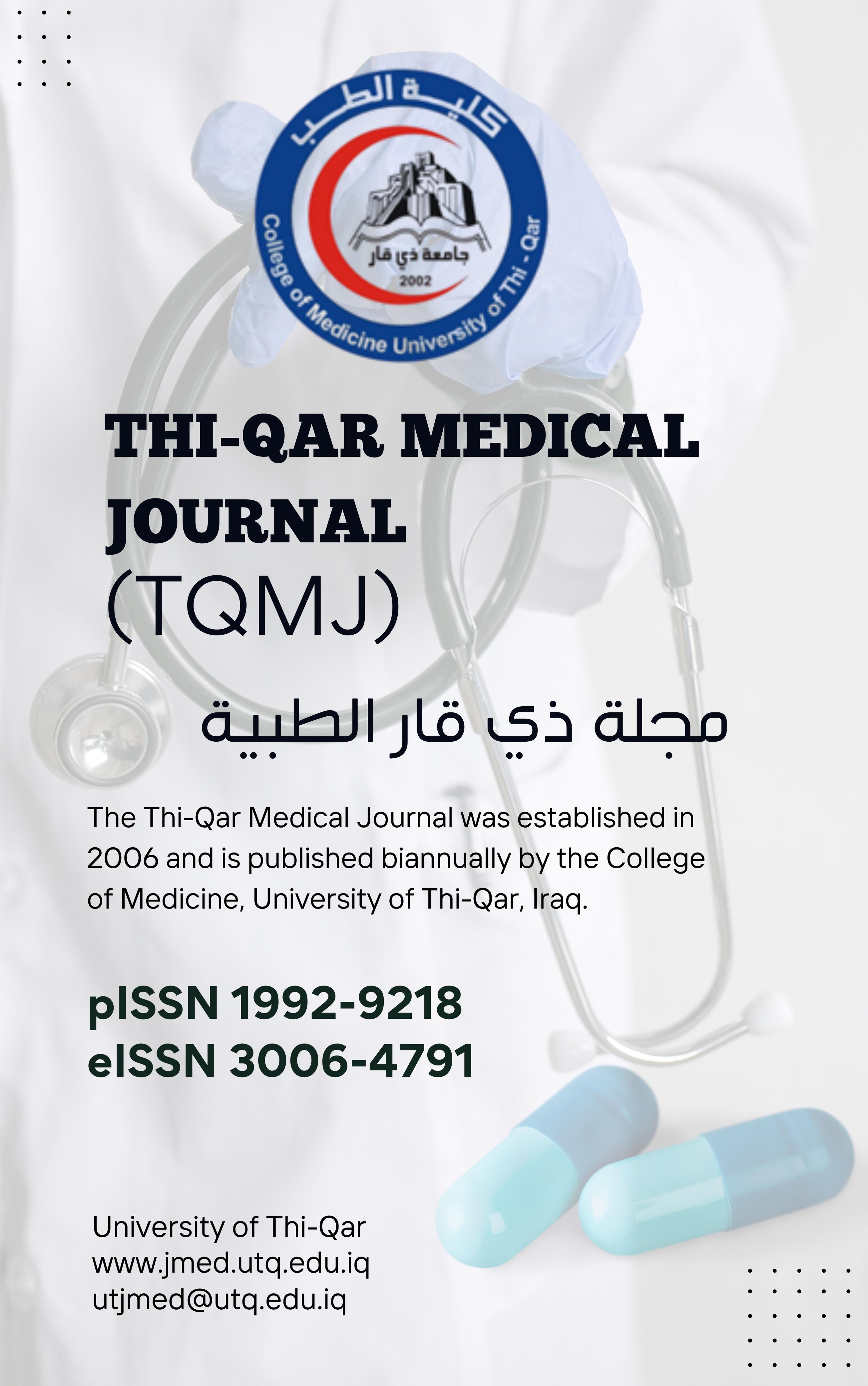Anemia in Pregnancy and its Association with Low Birth Weight in Sulaimani Primary Health Care Centers
DOI:
https://doi.org/10.32792/tmj.v26i2.419Keywords:
Anemia in pregnancy, Low birth weightAbstract
Background Anemia during pregnancy is commonly associated with poor pregnancy outcomes and can result in complications that threaten the life of both mother and fetus. Aim of the Study: This study aimed to find the incidence of low birth weight and the association of anemia in different trimesters of Pregnancy with the Mean birth weight of newborn Methods: In a prospective cohort study, a total of 224 Pregnant women followed from three primary health care centers in Sulaimani city Kurdistan Region, Iraq till the birth of full term. Data were analyzed using the statistical package for the Social Sciences version 26.0. A P-value ≤ 0.05 is considered a significant value. Conclusion: An association was found between Anemia in each trimester of pregnancy and the gender of the newborn with Mean birth weight. But for the mode of delivery, there is no association.References
AL-Shawi, A., Obaid, J. A., Mohammad, M. R., & Mohammed, N. H. (2012). Study the Incidence and Types of Anemia in Pregnant Women in Baghdad Province. J of university of Anbar for pure science, 6(1), 25-38.
Bakacak, M., Avci, F., Ercan, O., Köstü, B., Serin, S., Kiran, G., . . . Bakacak, Z. (2015). The effect of maternal hemoglobin concentration on fetal birth weight according to trimesters. J Matern Fetal Neonatal Med, 28(17), 2106-2110. doi: 10.3109/14767058.2014.979149
Biswas, P., Samsuzzaman, M., Chakraborty, A., & Das, D. K. (2019). Maternal anemia and low birth weight in a community development block of Purba Bardhaman, West Bengal: a retrospective cohort analysis. 2019, 6(12), 6. doi: 10.18203/2394-6040.ijcmph20195480
Büyük M. , S. K., Bütün Z. , Suman M. (2022). The Effect of Third Trimester Maternal Hemoglobin Value on Fetal Weight and Birth Week. . Medical Research Reports, 5(2), 62-67. doi: https://dergipark.org.tr/en/pub/mrr/issue/70771/1089438#article_cite
Lee, H. S., Kim, M. S., Kim, M. H., Kim, Y. J., & Kim, W. Y. (2006). Iron status and its association with pregnancy outcome in Korean pregnant women. Eur J Clin Nutr, 60(9), 1130-1135. doi: 10.1038/sj.ejcn.1602429
Mossialos, E., Allin, S., Karras, K., & Davaki, K. (2005). An investigation of Caesarean sections in three Greek hospitals: the impact of financial incentives and convenience. Eur J Public Health, 15(3), 288-295. doi: 10.1093/eurpub/cki002
Pourshirazi, M., Heidarzadeh, M., Taheri, M., Esmaily, H., Babaey, F., Talkhi, N., & Gholizadeh, L. (2022). Cesarean delivery in Iran: a population-based analysis using the Robson classification system. BMC Pregnancy and Childbirth, 22(1), 185. doi: 10.1186/s12884-022-04517-1
Shabila, N. P. (2017). Rates and trends in cesarean sections between 2008 and 2012 in Iraq. BMC Pregnancy and Childbirth, 17(1), 22. doi: 10.1186/s12884-016-1211-6
Stoll, B. J. (2006). Chapter 2 - Neonatal Infections: A Global Perspective. In J. S. Remington, J. O. Klein, C. B. Wilson & C. J. Baker (Eds.), Infectious Diseases of the Fetus and Newborn Infant (Sixth Edition) (pp. 27-57). Philadelphia: W.B. Saunders.
Tollånes, M. C. (2009). [Increased rate of Caesarean sections--causes and consequences]. Tidsskr Nor Laegeforen, 129(13), 1329-1331. doi: 10.4045/tidsskr.08.0453
Weli, S. (2020). Determination of Factors Associated with Low Birth Weight among Babies Born in Sulaimania City, Kurdistan-Iraq. Journal of the Faculty of Medicine Baghdad, 62(3). doi: 10.32007/jfacmedbagdad.6231751
WHO, W. H. O. (2001). Iron deficiency anaemia: assessment, prevention, and control. A guide for programme managers([accesed on 11:00pm 12/4/2023 ]), available on: https://www.who.int/health-topics/anaemia#tab=tab_1
WHO, W. H. O. (2015). The global prevalence of anaemia in 2011. Geneva: World Health Organization.
Williams, M. D., & Wheby, M. S. (1992). Anemia in pregnancy. Med Clin North Am, 76(3), 631-647. doi: 10.1016/s0025-7125(16)30344-3
Zhou, L. M., Yang, W. W., Hua, J. Z., Deng, C. Q., Tao, X., & Stoltzfus, R. J. (1998). Relation of hemoglobin measured at different times in pregnancy to preterm birth and low birth weight in Shanghai, China. Am J Epidemiol, 148(10), 998-1006. doi: 10.1093/oxfordjournals.aje.a009577
Downloads
Published
Issue
Section
License
Copyright (c) 2023 University of Thi-Qar Journal Of Medicine

This work is licensed under a Creative Commons Attribution-NonCommercial-NoDerivatives 4.0 International License.




